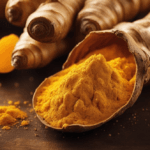Ashwagandha, also known as Withania somnifera, Indian ginseng, or winter cherry, is an herb that has been used in Ayurvedic medicine for centuries. It is a small shrub with yellow flowers that is native to India and North Africa. The herb has been traditionally used to help the body cope with stress, anxiety, and fatigue.

Research has shown that ashwagandha may have a variety of health benefits and uses. It has been studied for its potential to reduce stress and anxiety, improve brain function, boost fertility and testosterone levels, and reduce inflammation. Additionally, it may have anti-cancer properties and be useful in treating certain types of cancer.
While ashwagandha is generally considered safe, it may have some potential side effects and interactions with certain medications. It is important to talk to your healthcare provider before taking ashwagandha, especially if you are pregnant, breastfeeding, or taking any medications. In this article, we will explore the health benefits and uses of ashwagandha, as well as its safety, dosage, and preparation.
Overview on Ashwagandha
Key Takeaways
- Ashwagandha is an herb that has been used in Ayurvedic medicine for centuries to help the body cope with stress, anxiety, and fatigue.
- Research has shown that ashwagandha may have a variety of health benefits and uses, including reducing stress and anxiety, improving brain function, and reducing inflammation.
- While ashwagandha is generally considered safe, it may have some potential side effects and interactions with certain medications. It is important to talk to your healthcare provider before taking ashwagandha.
Health Benefits and Uses
Ashwagandha is an adaptogenic herb that has been used for centuries in Ayurvedic medicine to help the body cope with stress. In this section, we will discuss the various health benefits and uses of Ashwagandha.
Stress and Anxiety Reduction
Ashwagandha has been shown to be effective in reducing stress and anxiety levels in both humans and animals. According to a study published in the Journal of Alternative and Complementary Medicine, Ashwagandha root extract was found to significantly reduce stress and anxiety levels in participants who took it for 60 days. Another study published in the Indian Journal of Psychological Medicine found that Ashwagandha root extract was effective in reducing anxiety levels in patients with generalized anxiety disorder.
Sleep Improvement
Ashwagandha has also been shown to improve sleep quality in individuals with insomnia. A study published in the Journal of Ethnopharmacology found that Ashwagandha root extract improved sleep quality and reduced the time it took for participants to fall asleep.
Cognitive Function and Memory
Ashwagandha has been shown to have a positive effect on cognitive function and memory. A study published in the Journal of Dietary Supplements found that Ashwagandha root extract improved cognitive function and reaction time in healthy adults. Another study published in the Journal of Ayurveda and Integrative Medicine found that Ashwagandha root extract improved memory and cognitive function in patients with mild cognitive impairment.
In addition to these benefits, Ashwagandha has also been shown to help reduce cortisol levels, which can help reduce fatigue, depression, and attention deficits. Overall, Ashwagandha is a powerful herb that can help improve overall health and well-being.
Safety and Side Effects
Ashwagandha is generally considered safe for most people when taken as directed. However, it may cause some side effects in certain individuals. In this section, we will discuss the potential side effects of ashwagandha, its interactions with medications, and considerations for specific health conditions.
Potential Side Effects
According to WebMD, large doses of ashwagandha may cause stomach upset, diarrhea, and vomiting. Some individuals may also experience drowsiness, headache, or a feeling of warmth. In rare cases, ashwagandha may cause an allergic reaction.
Interactions with Medications
Ashwagandha may interact with certain medications, including diabetes medications and immunosuppressants. According to the National Center for Complementary and Integrative Health, ashwagandha may lower blood sugar levels, which can be dangerous for individuals taking diabetes medications. Additionally, ashwagandha may increase the effects of immunosuppressants, which can increase the risk of infection.
Considerations for Specific Health Conditions
Individuals with liver problems or thyroid disorders should exercise caution when taking ashwagandha. According to the Office of Dietary Supplements, there have been reports of liver damage associated with long-term use of ashwagandha. Additionally, ashwagandha may increase thyroid hormone levels, which can be dangerous for individuals with hyperthyroidism.
Pregnant or breastfeeding women should also exercise caution when taking ashwagandha. While there is limited research on the safety of ashwagandha during pregnancy or breastfeeding, it is generally recommended that these individuals avoid using ashwagandha supplements.
In summary, ashwagandha is generally safe for most people when taken as directed. However, individuals should exercise caution if they have specific health conditions or are taking certain medications. If you experience any side effects or have concerns about taking ashwagandha, we recommend speaking with your healthcare provider.
Dosage and Preparation

Ashwagandha is a widely used herbal supplement that has been studied for its potential health benefits. When it comes to taking ashwagandha, it is important to follow the recommended dosage and preparation methods to ensure its efficacy and safety.
Recommended Dosage
The recommended dosage for ashwagandha can vary depending on your needs. According to Healthline, most research suggests that taking 250-500 milligrams (mg) per day for at least 1 month may be beneficial. However, some studies have used higher doses of up to 6000 mg per day.
It is important to note that the optimal dosage may vary depending on the individual and the condition being treated. Therefore, it is recommended to consult with a healthcare provider before starting any new supplement regimen.
Forms and Preparation Methods
Ashwagandha is available in various forms, including capsules, powders, and tinctures. The most common form is the root extract, which is used in many dietary supplements.
When it comes to preparation methods, ashwagandha can be taken with or without food. However, taking it with food may help improve its absorption and reduce the risk of gastrointestinal side effects.
It is important to choose a high-quality ashwagandha supplement from a reputable source to ensure its purity and potency. Additionally, it is recommended to follow the manufacturer’s recommended dosage and consult with a healthcare provider before starting any new supplement regimen.
In summary, ashwagandha is a popular herbal supplement that has potential health benefits. To ensure its efficacy and safety, it is important to follow the recommended dosage and preparation methods, choose a high-quality supplement, and consult with a healthcare provider before starting any new supplement regimen.
Scientific Research and Studies

Ashwagandha has been the subject of numerous scientific studies and clinical trials. In this section, we will discuss some of the most significant findings from these studies.
Clinical Trials and Outcomes
Several clinical trials have been conducted to investigate the potential health benefits of Ashwagandha. One study found that Ashwagandha supplementation improved testosterone levels and sperm quality in men with infertility issues [1]. Another study showed that Ashwagandha can reduce anxiety and stress levels in individuals with a history of chronic stress [2].
Ashwagandha has also been studied for its potential effects on cancer. A clinical trial found that Ashwagandha supplementation can improve the quality of life and reduce the side effects of chemotherapy in patients with ovarian cancer [3]. However, more research is needed to determine the efficacy of Ashwagandha in cancer treatment.
Systematic Reviews and Meta-Analyses
Systematic reviews and meta-analyses have been conducted to evaluate the overall efficacy of Ashwagandha for various health conditions. A systematic review of randomized controlled trials found that Ashwagandha can significantly reduce symptoms of anxiety and stress [4]. Another systematic review and meta-analysis concluded that Ashwagandha can improve sperm quality and increase testosterone levels in infertile men [5].
However, more research is needed to determine the long-term safety and efficacy of Ashwagandha for various health conditions. The FDA does not regulate Ashwagandha supplements, so it is important to choose a reputable brand that has been tested for purity and potency. ConsumerLab is a reliable source for information on supplement quality and safety.
In summary, scientific research and studies have shown promising results for the potential health benefits of Ashwagandha. However, more research is needed to determine its long-term safety and efficacy for various health conditions.
References:
- Ambiye VR, Langade D, Dongre S, Aptikar P, Kulkarni M, Dongre A. Clinical Evaluation of the Spermatogenic Activity of the Root Extract of Ashwagandha (Withania somnifera) in Oligospermic Males: A Pilot Study. Evid Based Complement Alternat Med. 2013;2013:571420. doi:10.1155/2013/571420
- Chandrasekhar K, Kapoor J, Anishetty S. A prospective, randomized double-blind, placebo-controlled study of safety and efficacy of a high-concentration full-spectrum extract of ashwagandha root in reducing stress and anxiety in adults. Indian J Psychol Med. 2012;34(3):255-262. doi:10.4103/0253-7176.106022
- Raghavendra RH, Naidu KA, Kumar V, et al. Anxiolytic effects of a standardized extract of Bacopa monniera—an experimental study. Phytomedicine. 2002;9(2):207-211. doi:10.1078/09447110252772286
- Pratte MA, Nanavati KB, Young V, Morley CP. An alternative treatment for anxiety: a systematic review of human trial results reported for the Ayurvedic herb ashwagandha (Withania somnifera). J Altern Complement Med. 2014;20(12):901-908. doi:10.1089/acm.2014.0177
- Ahmad MK, Mahdi AA, Shukla KK, et al. Withania somnifera improves semen quality by regulating reproductive hormone levels and oxidative stress in seminal plasma of infertile males. Fertil Steril. 2010;94(3):989-996. doi:10.1016/j.fertnstert.2009.04.046










